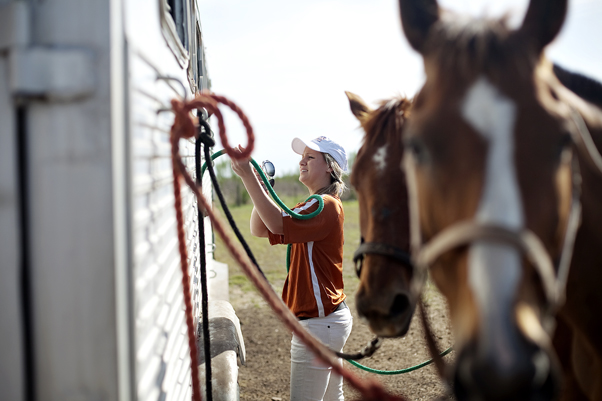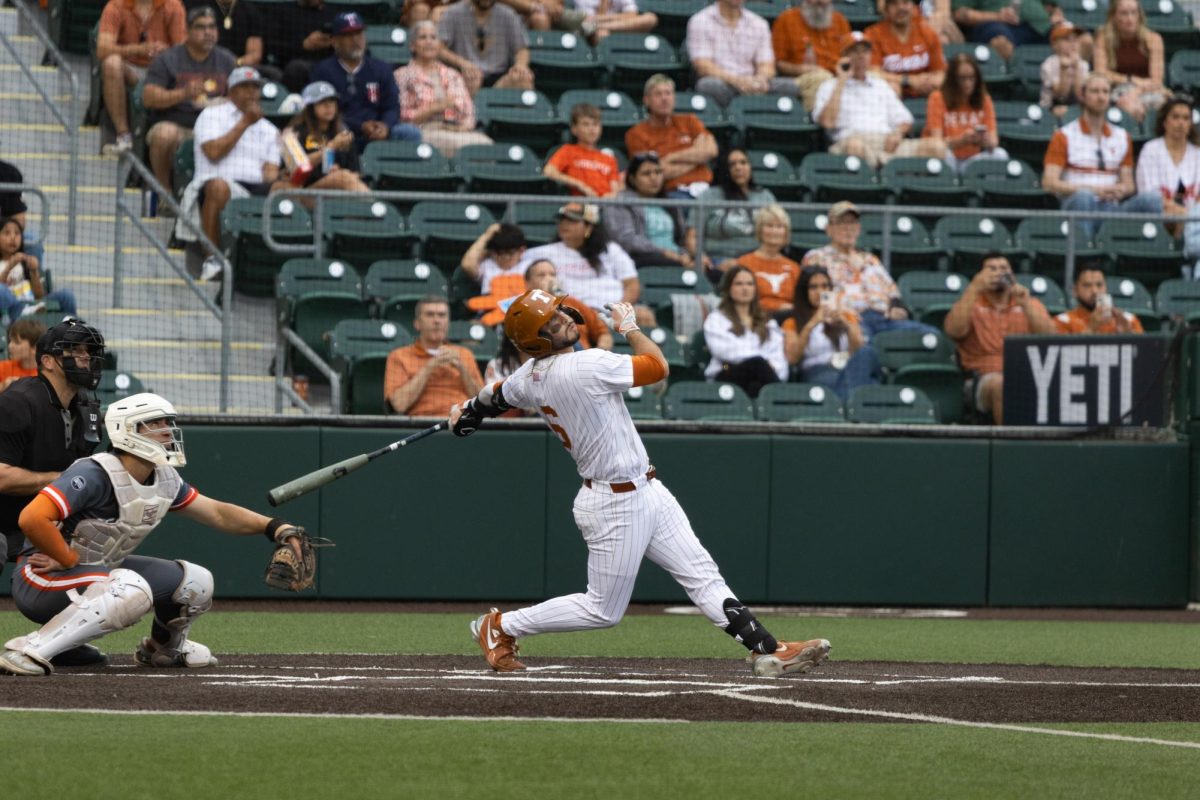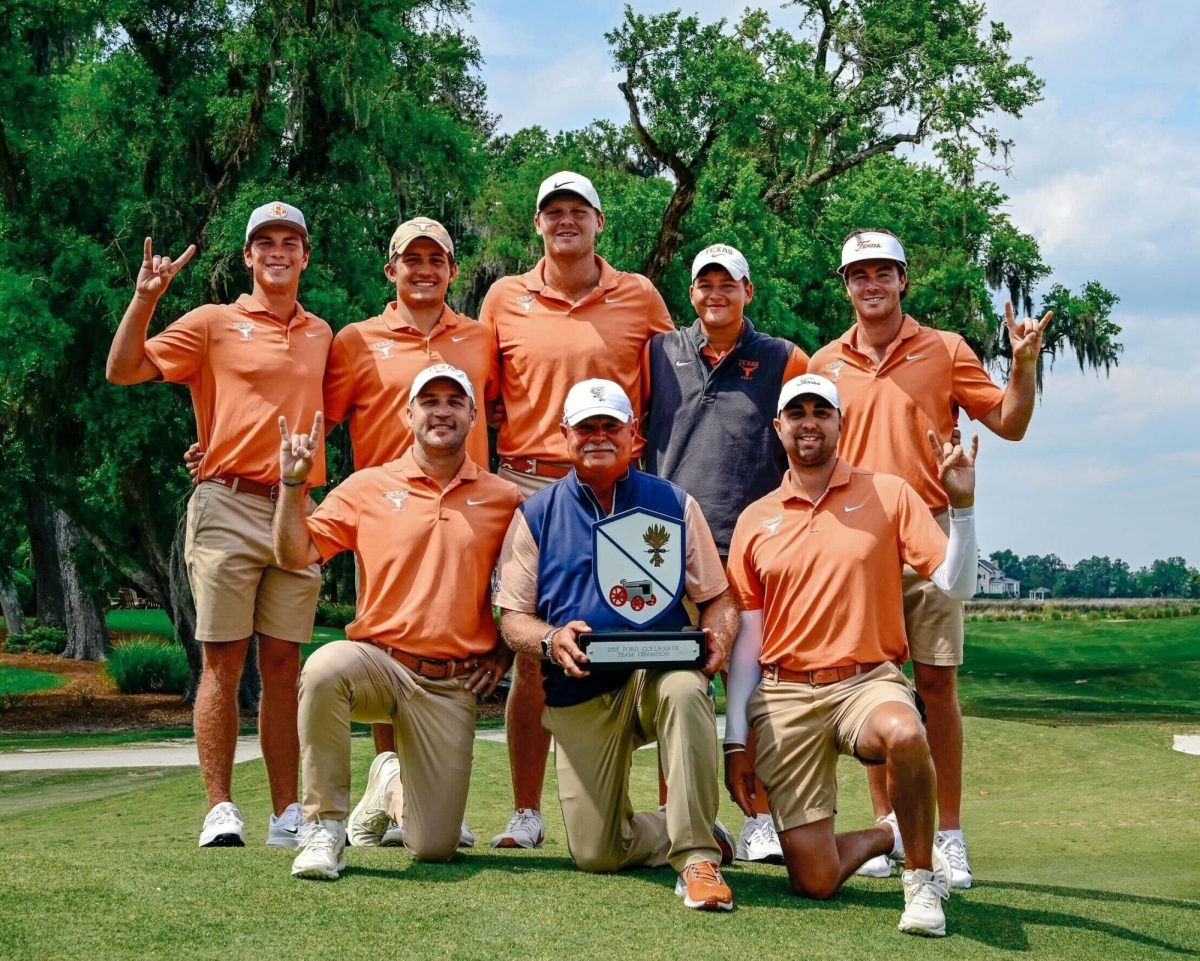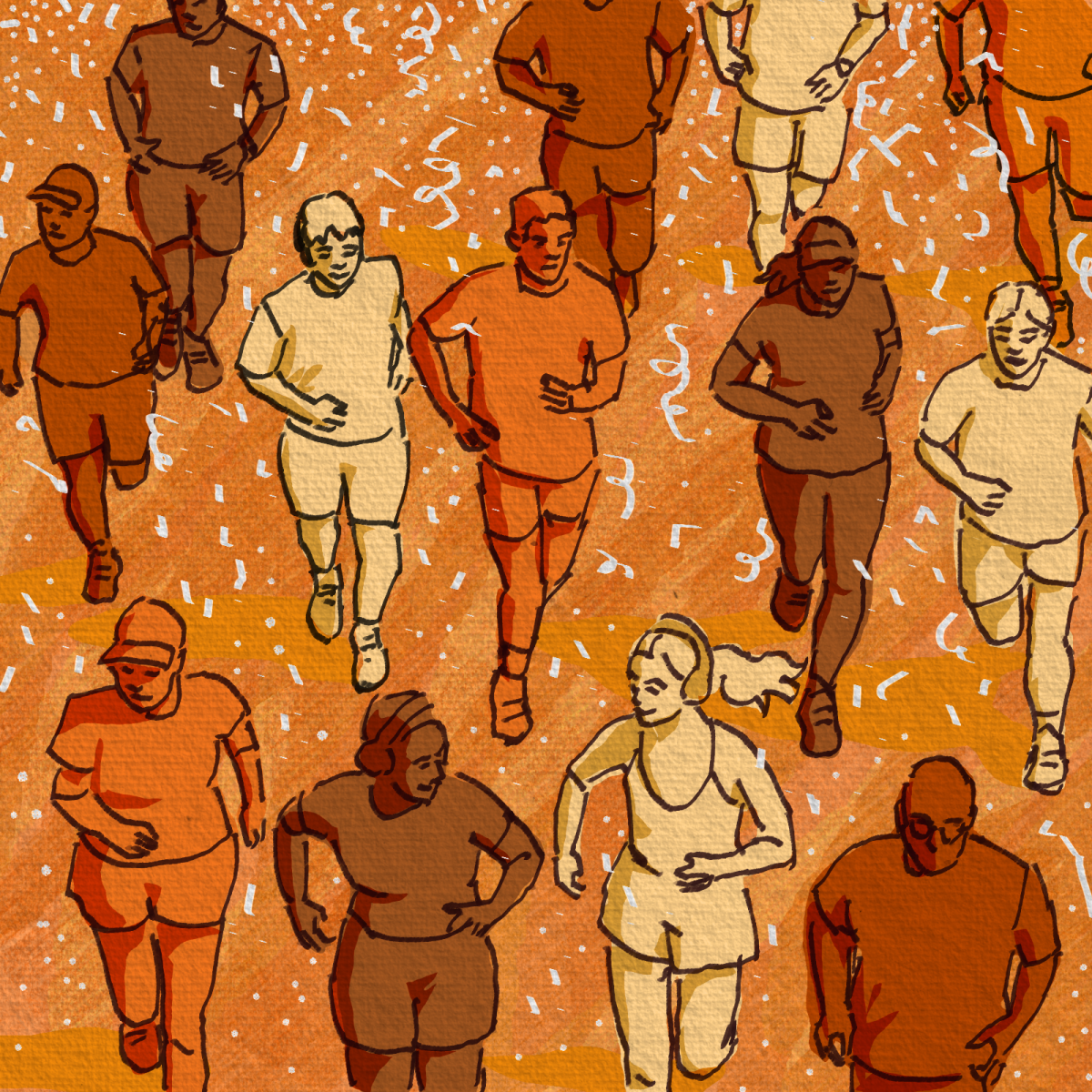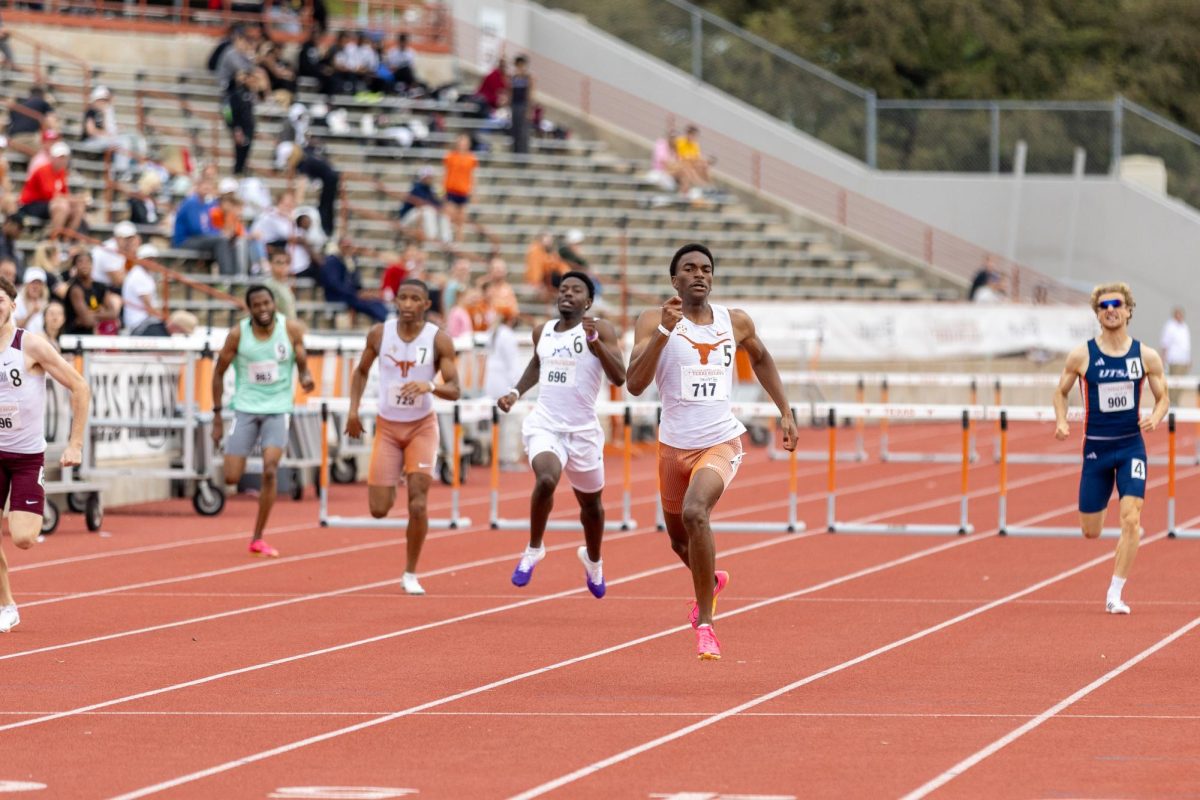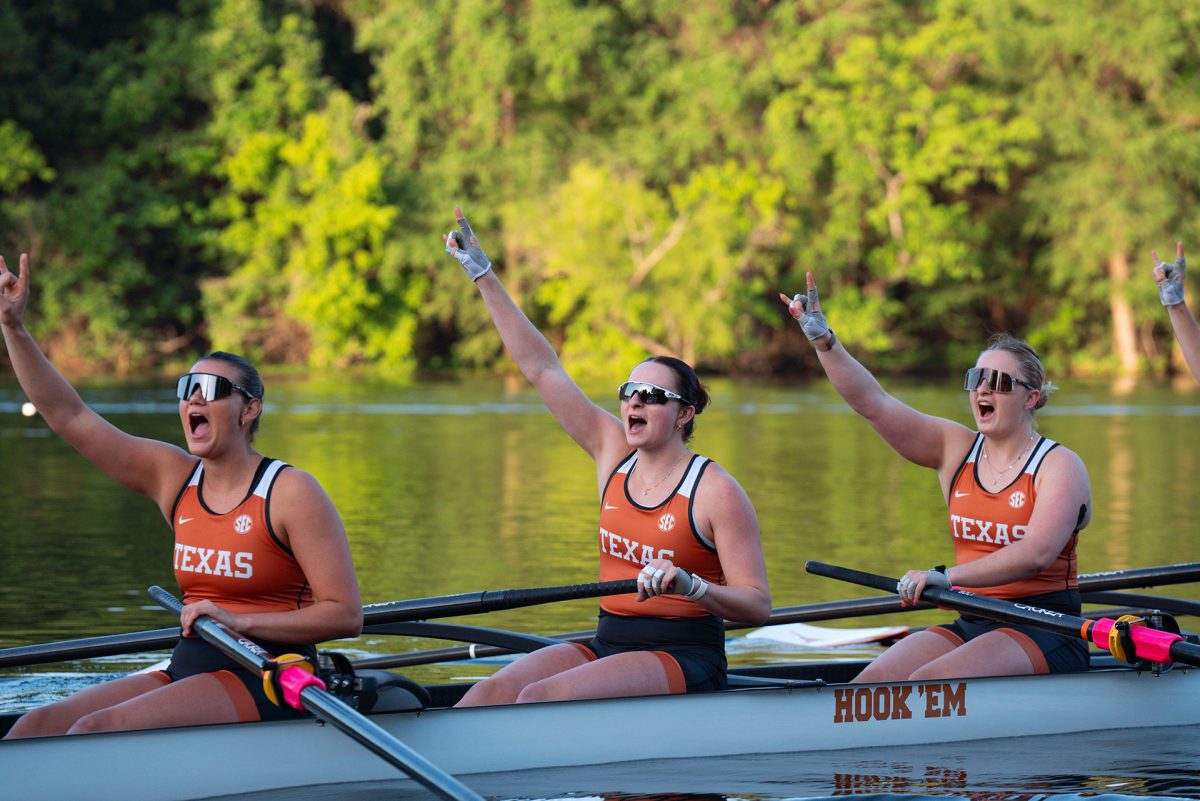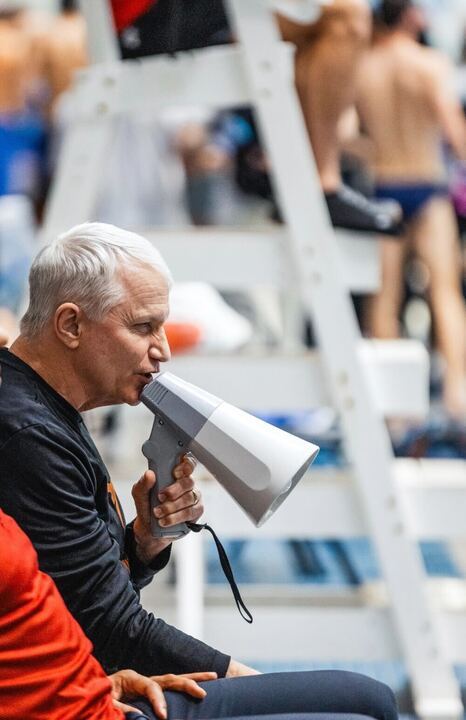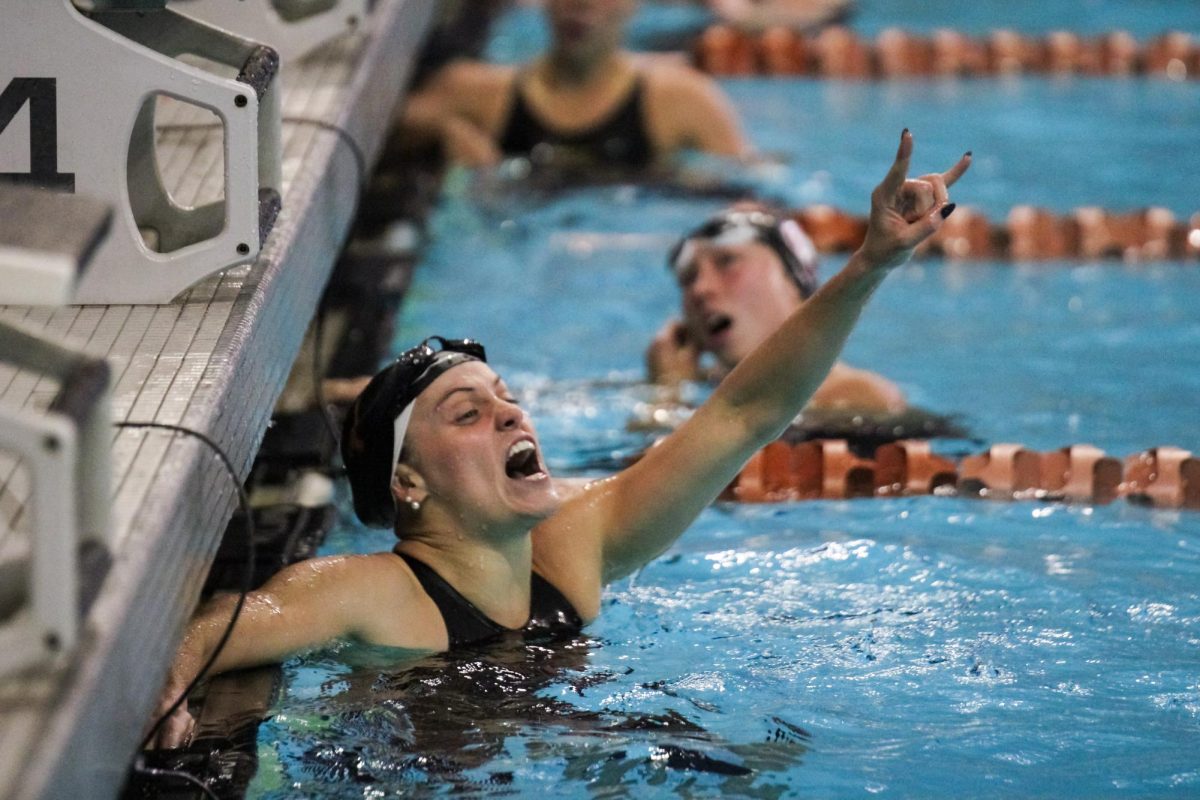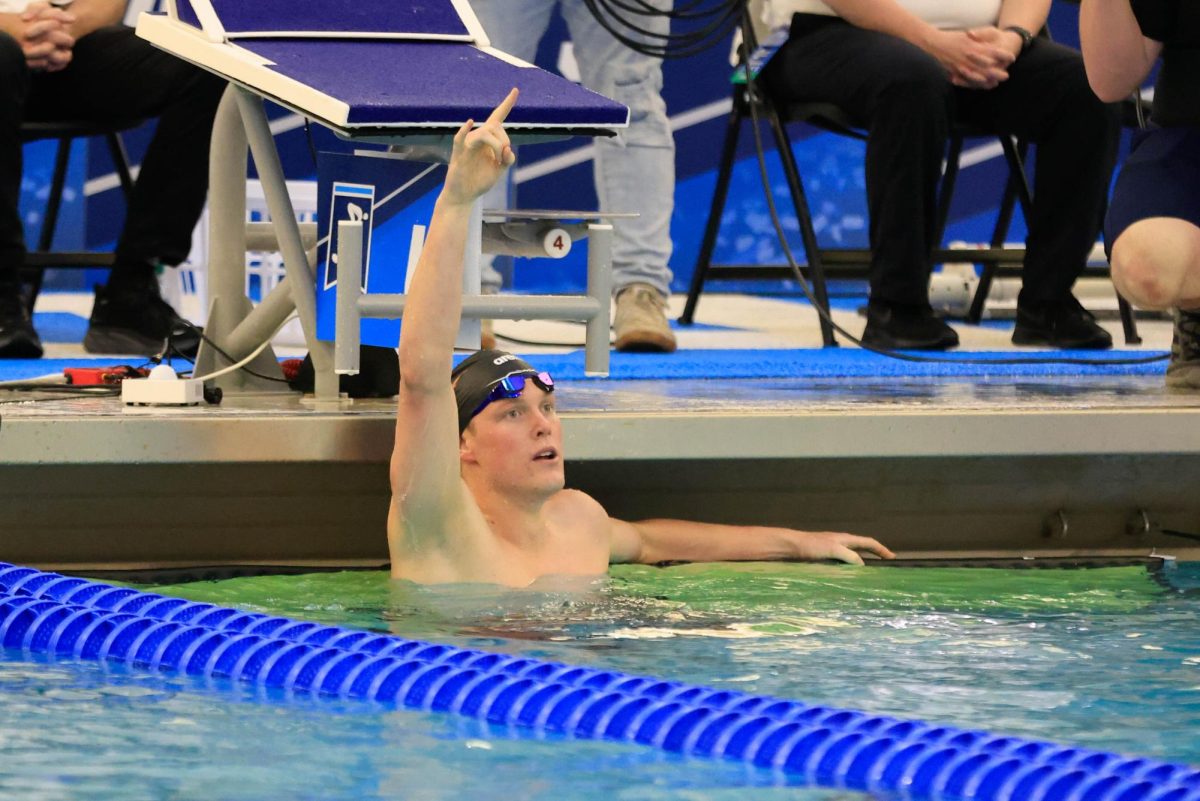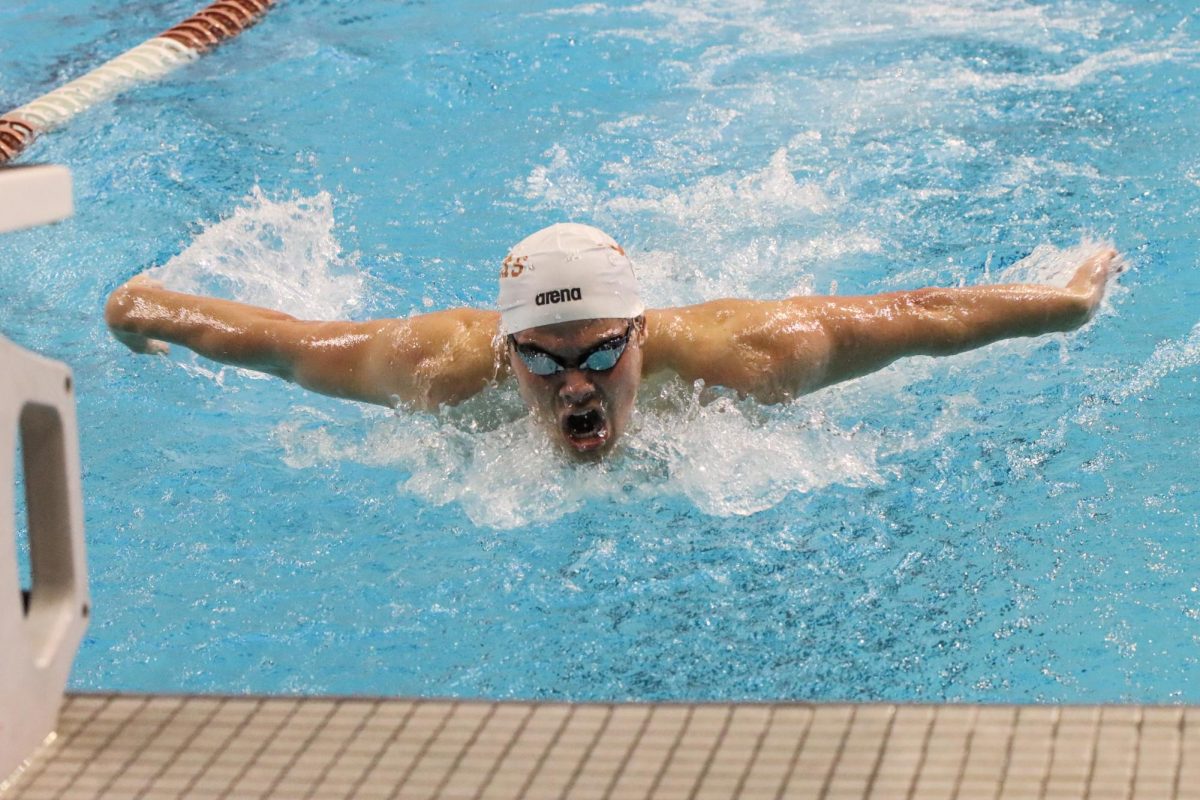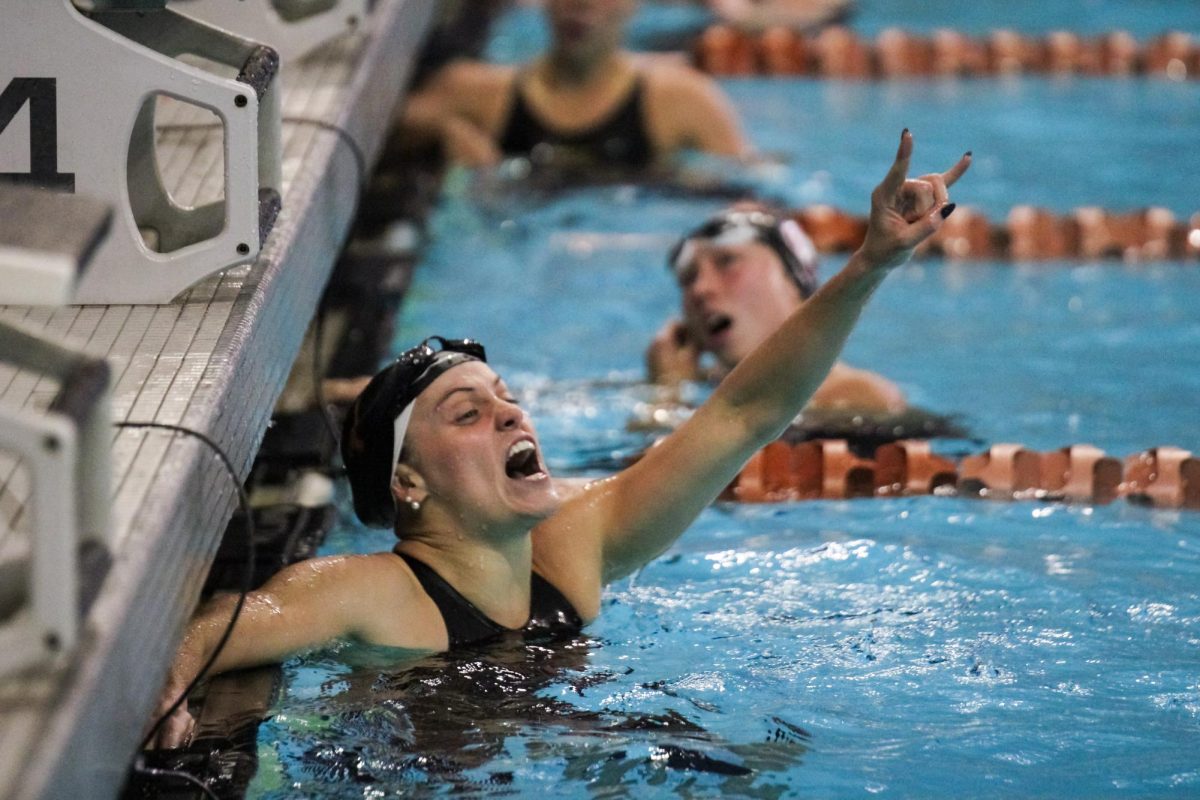For neurobiology junior Ethan Galis, the prospect of giving up his passion for riding horses upon attending college was difficult to imagine.
Instead, Galis found a way to fill that void: the University of Texas polo club.
“I was really missing that horseback riding aspect in my life,” said Galis, who is also the club’s vice president. “Starting to play polo opened so many opportunities. I wouldn’t be here today without polo.”
The state of Texas has always had a love affair with American sports. Baseball, basketball and football stars are born and bred every day in the Lone Star State. A game of prestige, Europeans and Latin Americans usually make up the competitive polo circuit. But UT polo team members are out to prove otherwise.
“It’s hard to start playing and not get addicted to the sport,” Galis said. “After picking up that mallet for the first time and hitting it, the rush I felt … It was awesome.”
The sport of kings, polo is a worldwide phenomenon, commonly associated with exclusivity, extravagance and privilege.
The sport is played outdoors with teams made up of four players. Home to the biggest field in organized sports, a polo field is 300 yards long and 160 yards wide. Matches usually last around two and a half hours, divided into six periods known as chukkers.
“The game is extremely popular on the East Coast,” Galis said. “A lot of those kids are kind of being born with a mallet in their hand. They get into the competition and just kill.”
Similar to golf, players are required to have a handicap indicating their value to the team. A two-goal handicap or higher usually indicates professional status; a 10 handicap is perfect.
Founded in 1997, what makes the UT polo club unique is that many of its members have never picked up a mallet before entering college. Daunting as it may seem, Galis assured that alternating between keeping balance and swinging a mallet is an experience everyone is bound to get over.
“I’d say 95 percent of the game is balance on a horse,” he said. “If you can ride a horse, in majority, you can play polo. The smarts will eventually come.”
For American polo players, the collegiate level tends to serve as the stepping stone between amateur and professional play. For junior polo club social chair Morgan Tennant, the team means everything.
“It’s been a huge part of my college experience,” Tennant said. “These people are like family, and the horses are like our children.”
The team features female and male junior varsity and varsity squads that compete against other clubs and collegiate teams. Texas Tech’s team won regionals this spring, while Texas A&M’s squad won the national title last year.
But because the sport is so under the radar in the United States, getting the club’s name known across a campus of thousands of people has been tough.
“It’s just hard because it’s so small to get the exposure out there,” Tennant said. “We welcome anyone, horse experience or not.”
Polo is played year-round with the most competitive season coming in spring. In what will be the squad’s biggest match of the season, the polo club is hosting its spring benefit Saturday to include two matches, the traditional divot stomp during halftime and a floppy hat contest.
In conjunction with the Kentucky Derby, Tennant hopes it will draw anyone who has even a remote interest in equestrianism or the game of polo.
“The match is going to be really upscale, like most polo matches,” Tennant said. “But contrary to thought, it’s also laid-back and fun.”
The combination of competition and social gatherings leaves Galis and Tennant encouraging anyone to get involved. Galis, who hasn’t ruled out a professional career after college, lives and plays by this short phrase:
“A polo handicap is your ticket around the world.”

